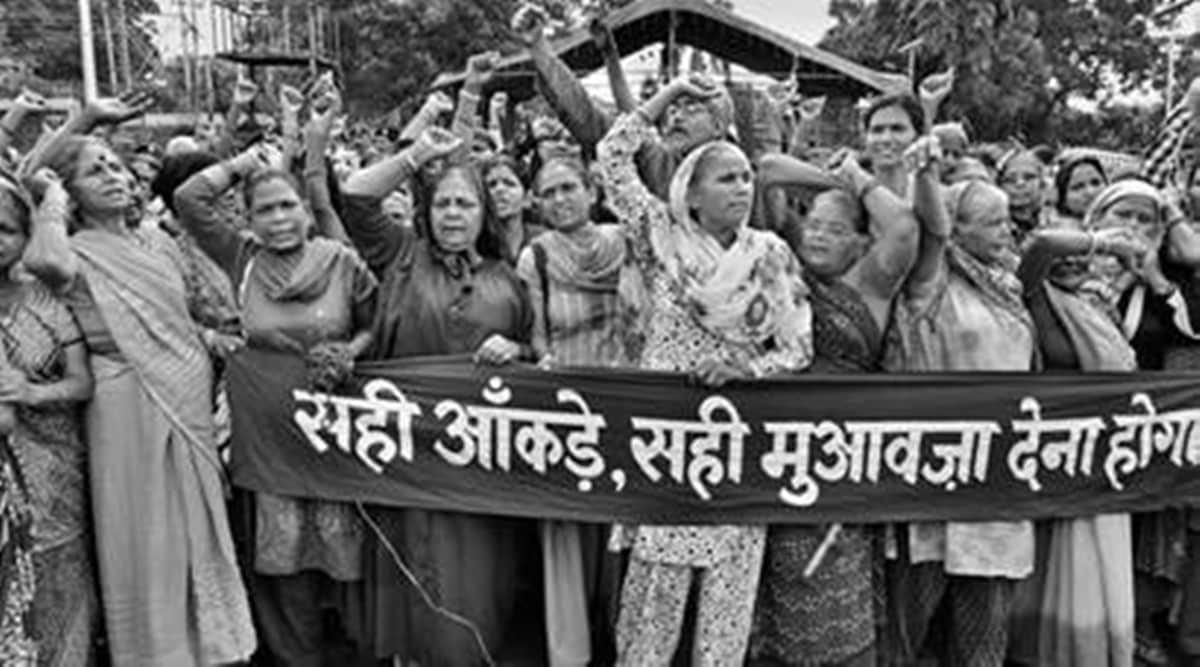Bhopal gas tragedy: SC junks govt plea for more compensation from UCC, says settlement amount sufficient
The court also censured the Centre over its failure to make an insurance policy, and called it “gross negligence on part of the Union of India”.
 The Supreme Court is scheduled to pronounce its verdict on Tuesday on the Centre's curative plea seeking an additional Rs 7,844 crore from Union Carbide Corporation's successor firms to extend higher compensation to the victims of the 1984 Bhopal gas tragedy. (Source: Amnesty International © Raghu Rai / Magnum Photos)
The Supreme Court is scheduled to pronounce its verdict on Tuesday on the Centre's curative plea seeking an additional Rs 7,844 crore from Union Carbide Corporation's successor firms to extend higher compensation to the victims of the 1984 Bhopal gas tragedy. (Source: Amnesty International © Raghu Rai / Magnum Photos)
The Supreme Court on Tuesday dismissed the Centre’s 2010 curative petition that sought additional compensation of more than Rs 7,000 crore from the Union Carbide Corporation (UCC) for victims of 1984 Bhopal gas tragedy, which had left nearly 3,000 people dead and lakhs affected.
The court also censured the Centre over its failure to make an insurance policy, and called it “gross negligence on part of the Union of India”.
A Constitution bench, comprising Justices S K Kaul, Sanjiv Khanna, A S Oka, Vikram Nath and J K Maheshwari, pointed out that in proceedings which culminated in the apex court’s July 19, 2004, ruling on review petitions in the case, it was “admitted…that the amount of settlement was found to be in surplus of the actual requirement and thus the claimants had been ‘provided compensation that was more than what was reasonably awarded to them under the law’”.
This, the bench said, “reinforces the position (that) the settlement amount was sufficient to compensate the claimants”.
Taking exception to the Centre filing the curative petition, the SC said, “The Union has filed the present curative petition seeking to reopen the settlement after opposing attempts by private parties to do so”.
It said the “responsibility was placed on the Union of India, being a welfare state, to make good the deficiency and to take out the relevant insurance policy. Surprisingly, we are informed that no such insurance policy was taken out. This is gross negligence on part of the Union of India and a breach of the directions made in the review judgement.”
The verdict said, “The Union cannot be negligent on this aspect and then seek a prayer from this court to fix such responsibility on the UCC.” It noted that the Centre’s claim for a top-up has “no foundation in any known legal principle”.
The court said a settlement is either valid or it is to be set aside in cases where it is vitiated by fraud, but “no such fraud has been pleaded by the Union of India. It said the government’s “only contention relates to a number of victims, injuries caused…not contemplated at the time the settlement was affected”.
The bench said, “It was known that medical facilities will have to be extended to rehabilitate people and there was bound to be environmental degradation. In fact, it was UCC’s allegation that (the) Union and State did not proactively detoxify or recommission the site, thereby aggravating the problem. In any case, this cannot be a ground to seek annulment of the compromise, particularly as the settlement has to be reached in an expeditious manner.”
The ruling said that the Attorney General’s response has been that the method of topping up the settlement amounts to be devised under Article 142 of the Constitution.
The bench said, “We believe this would not be the appropriate course of action…we are equally dissatisfied with the Union of India being unable to furnish any rationale for raking up this affected issue more than two decades after the incident”.
The bench said, “even assuming that the figures of affected persons turned out to be larger than contemplated earlier, an excess amount of funds remain available to satisfy such claims. The Welfare Commissioner has in fact held in the order dated January 31, 2009, that on including the pro-rata compensation, nearly six times the amount of compensation had been dispersed to the victims in comparison with motor vehicle accident claims….”.
The bench said that “a sum of Rs 50 crore lying with the Reserve Bank of India shall be used by the Union of India to satisfy pending claims, if any, in accordance with the Bhopal Gas Leak Disaster Act, 1985, and the scheme framed thereunder”.
Underlining the need to provide a closure to the case, it said failure to do so could open a Pandora’s Box in UCC’s favour and would only be to the detriment of the beneficiaries.







